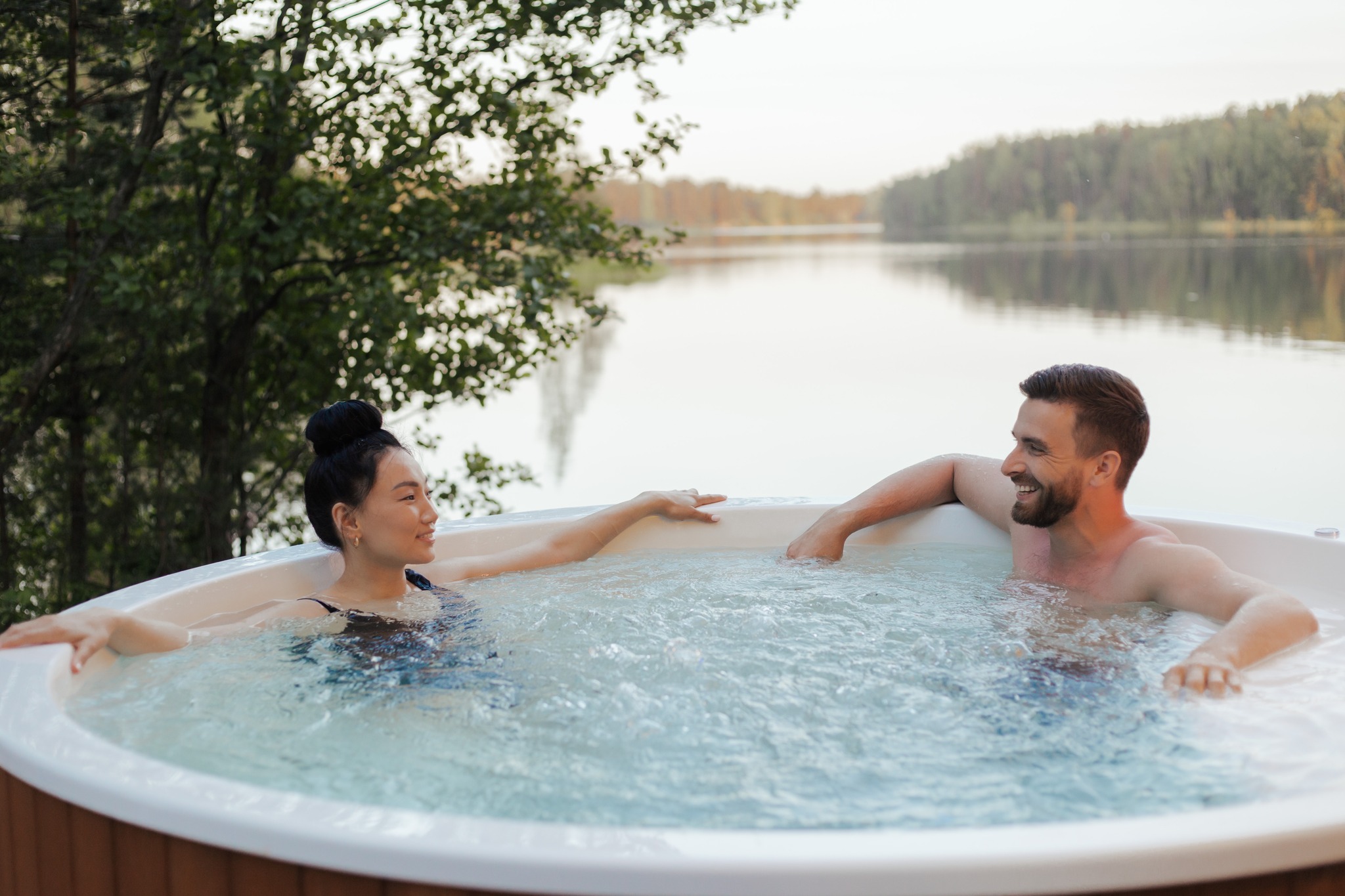In today’s fast-paced world, many of us are looking for natural ways to unwind, heal, and recharge. One of the most effective and enjoyable solutions is hydrotherapy, particularly through the use of hot tubs. Hydrotherapy uses water’s temperature, buoyancy, and pressure to support health and wellness. Whether you’re dealing with chronic pain, restless nights, or overwhelming stress, soaking in a hot tub can offer remarkable relief.
Let’s explore how hot tubs contribute to better stress management, pain reduction, and improved sleep.
Stress Relief: The Calming Power of Warm Water
Stress has become a near-constant part of modern life. From work deadlines to family responsibilities, it’s easy to feel overwhelmed. A hot tub provides a sanctuary where both your body and mind can relax.
Warm water immersion triggers the body’s relaxation response, lowering cortisol levels—the hormone linked to stress. As your muscles loosen and your breathing deepens, your nervous system shifts into a calmer state. The gentle massage from water jets enhances this effect, stimulating circulation and easing tension in areas where stress is often stored, such as the neck, shoulders, and lower back.
Beyond the physical benefits, soaking in a hot tub also offers a mental reset. The quiet environment, often away from screens and distractions, creates the perfect setting for mindfulness or meditation. Even a short 15–20 minute soak can leave you feeling centered, grounded, and better equipped to handle daily challenges.
Pain Relief: A Natural Ally for Aches and Injuries
Hydrotherapy has been used for centuries as a way to ease physical pain, and modern hot tubs carry this tradition forward. The buoyancy of water reduces pressure on joints and muscles, making it easier to move without strain. This is especially valuable for individuals with arthritis, fibromyalgia, or sports-related injuries.
Hot water dilates blood vessels, increasing circulation and delivering more oxygen and nutrients to sore or injured tissues. This process accelerates healing while reducing inflammation and stiffness. For athletes, hot tub sessions can be a powerful tool for post-workout recovery, easing muscle soreness and preventing injury from overuse.
Many hot tubs also feature customizable jet systems that act like targeted massagers. These jets can focus on problem areas such as the lower back, shoulders, or legs, helping to relieve chronic pain and tension more effectively than heat packs or stretching alone.
Better Sleep: Preparing the Body and Mind for Rest
If you struggle with falling or staying asleep, a hot tub might be the bedtime ritual you’ve been missing. The connection between hydrotherapy and improved sleep is rooted in body temperature regulation and relaxation.
When you soak in warm water, your body temperature rises. Once you leave the hot tub, your body naturally cools down, mimicking the temperature drop that happens as part of your body’s natural sleep cycle. This signals to your brain that it’s time to rest, making it easier to drift off to sleep.
Additionally, the stress and pain relief gained from hot tub use naturally support better rest. Reduced tension and relaxed muscles allow for deeper, more restorative sleep. Many hot tub users report fewer nighttime awakenings and improved overall sleep quality after incorporating evening soaks into their routine.
Making Hydrotherapy Part of Your Lifestyle
To maximize the benefits of hot tub hydrotherapy, consistency is key. Here are a few practical tips:
- Set a schedule: Aim for 15–30 minutes in the hot tub, three to five times per week.
- Time it right: For better sleep, soak about an hour before bedtime.
- Stay hydrated: Warm water can be dehydrating, so keep a glass of water nearby.
- Enhance the atmosphere: Dim lighting, soft music, or aromatherapy can elevate your experience.
- Listen to your body: If you feel lightheaded or overheated, it’s best to take a break.
Conclusion
Hot tubs are more than just a luxury—they’re a powerful tool for enhancing physical and mental well-being. Through the principles of hydrotherapy, hot tubs help relieve stress, ease pain, and promote restful sleep. Whether you’re looking to improve recovery after workouts, manage chronic conditions, or simply carve out a space for relaxation, regular hot tub use can make a meaningful difference in your daily life.
So the next time you step into warm, bubbling water, remember: you’re not just indulging—you’re healing.



